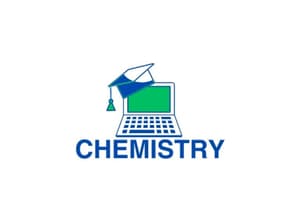Podcast
Questions and Answers
Which of the following is a property of ionic compounds?
Which of the following is a property of ionic compounds?
- They do not conduct electricity in solid form.
- They consist of non-metallic elements only.
- They typically form between metals and non-metals. (correct)
- They have a low melting point.
Anions are formed when an atom loses one or more electrons.
Anions are formed when an atom loses one or more electrons.
False (B)
What is the reaction type where two or more substances combine to form a single product?
What is the reaction type where two or more substances combine to form a single product?
synthesis reaction
In a neutralization reaction, an acid reacts with a base to produce _______ and water.
In a neutralization reaction, an acid reacts with a base to produce _______ and water.
Match the following compounds with their types:
Match the following compounds with their types:
Flashcards
Periodic Table Information
Periodic Table Information
The periodic table can provide information about the number of protons, neutrons, electron shells, valence electrons, and ionic charge of an element.
Cation Formation
Cation Formation
A cation is a positively charged ion formed when an atom loses one or more electrons.
Ionic Compound
Ionic Compound
An ionic compound is formed by the electrostatic attraction between positively charged cations and negatively charged anions.
Chemical Equation Balancing
Chemical Equation Balancing
Signup and view all the flashcards
pH Scale
pH Scale
Signup and view all the flashcards
Study Notes
Periodic Table Information
- Periodic table provides information about atoms: number of protons, neutrons, electron shells, valence electrons, and ion charge.
- Also identifies metals, nonmetals, and metalloids.
Formation of Ions
- Explains how cations and anions form.
Lewis and Bohr Diagrams
- Explains Lewis and Bohr diagrams.
Ionic vs. Molecular Compounds
- Explains the difference between ionic and molecular compounds.
Chemical Nomenclature
- Discusses diatomic molecules (HONC|BrIF).
- Importance of following rules for naming compounds.
- Ionic compounds (metal + nonmetal) including those with multivalent metals.
- Ionic compounds with polyatomic ions.
- Molecular compounds (two nonmetals) with prefixes (mono, di, tri, etc.).
Chemical Equations
- Explains chemical equations: standard, skeletal, and balanced equations.
- Uses SIMDUT (WHMIS) and Domestic symbols.
Types of Reactions
- Synthesis reaction
- Decomposition reaction
- Endothermic reaction
- Exothermic reaction
- Single displacement reaction
- Double displacement reaction
- Combustion reaction (complete and incomplete)
Acids and Bases
- Discusses properties of acids and bases including relevant compounds.
- Discusses and explains the pH scale.
- Discusses neutralization reactions.
Reaction Rate Factors
- Explains how factors like temperature, concentration, surface area, and catalysts affect reaction rates.
Studying That Suits You
Use AI to generate personalized quizzes and flashcards to suit your learning preferences.
Related Documents
Description
Explore the intricacies of chemical bonds, including the formation of ions, differences between ionic and molecular compounds, and the significance of chemical nomenclature. This quiz covers key concepts such as Lewis and Bohr diagrams, types of chemical reactions, and how to write and balance chemical equations.




